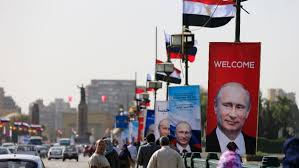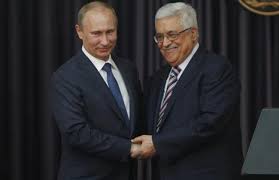In the face of America decline and her loss of strength and reliability, Russia is emerging:
● as a vocal defender of Christianity against Muslim persecution around the world;
● as a plausible peacemaker in the Middle East, with far better relationships with Israel, Saudi Arabia, Egypt, and Syria than America has today;
● as the monopoly natural gas supplier for Germany and Austria and Ukraine with the consent of the Franco-German axis;
● as the only country with a credible a nuclear umbrella to protect its friends and deter its enemies;
● as a country that understands the value of relatively free markets – as seen by the 14% flat tax Putin just introduced in Russia and the new economic development zone created in the Crimea.
Vladimir Putin now looks like the heir of Peter the Great, the modernizing Tsar. He is looking to take the USA’s place as the decisive power in the Middle East. He also wants to play a big role in the next OPEC, based on shale gas and oil. Energy has been Russia’s weapon of choice, against a dependent Europe.
Putin has paid personal visits all over the Middle East and kept contacts with all the players, including the Sisi regime in Egypt, Israel, Syria’s Assad, and Saudi Arabia.
Everybody is now bidding for his support.

Egypt
Egypt has resumed talks about the creation of a free trade zone with Russia. Russian state nuclear firm Rosatom is considering the construction of a nuclear power plant in Egypt. Egypt is already the largest importer of Russian wheat, buying one fifth of the country’s exports of this commodity.
The military deal-worth an estimated $3 billion-was reportedly signed on February 14 and includes MiG-29 fighters, air and coastal defense systems, Mi-35 attack helicopters and small arms. Egyptian Defense Minister Abdel Fattah ai-Sisi slated to be Egypt’s next president, flew to Russia to meet with Russian President Vladimir Putin. The Saudis have agreed to foot the bill for the arms.
Egypt is buying the weapons from Russia, a long-time supporter of Iran and the Syrian government who are Saudi’s opponents. However the Saudis-and Egyptians do not trust America to counter Iran, so they are doing it themselves.
Iran
Iran has expanded trade and has proposed a second Russian nuclear plant at Bushehr. Iran is the second largest OPEC oil producer, with a production of about 4 million barrels of oil a day. The country’s recoverable oil reserves are estimated at over 137 billion barrels, or 12 per cent of the world’s overall reserves. Iran also has the world’s second largest natural gas reserves, estimated at 28 trillion cubic meters. Moscow has already proved it can bust international sanctions by concluding a $1.5 bn contract with Tehran for the purchase of half a million barrels of Iranian oil a day, without a word of complaint from Washington.
Iran and Russia have made progress towards an oil-for-goods deal sources said would be worth up to $20 billion, which would enable Tehran to boost vital energy exports in defiance of Western sanctions, people familiar with the negotiations told Reuters. Moscow and Tehran were discussing a barter deal that would see Moscow buy up to 500,000 barrels a day of Iranian oil in exchange for Russian equipment and goods.
Palestine
Palestinian Authority Chairman Mahmoud Abbas (Abu Mazen) launched his “diplomatic intifada” against Israel and exit from the Kerry peace initiative Thursday, Jan.23, from Moscow. His meetings with Putin signaled his bid for Russian backing for a Palestinian state. The Palestinian leader began his conversation with Putin by calling Russia a great power that deserved to play a more prominent role in the volatile Middle East. Russian tactics for Syria and Iran had proved effective, he said, and Moscow could perform the same function on the Israeli Palestinian track.
Abbas and Medvedev were to sign an agreement for a $1 billion natural gas project in the Gaza section of the Mediterranean Sea. Russia’s natural gas giant Gazprom hoped to produce 30 billion cubic meters of natural gas at the site.

For the Russian leader it was a chance to show that he was several steps ahead of the game on the three hottest Middle East issues –
- Iran’s nuclear program,
- the Syrian civil conflict
- Palestinian bid for statehood.
Meanwhile, the silence from America is deafening.